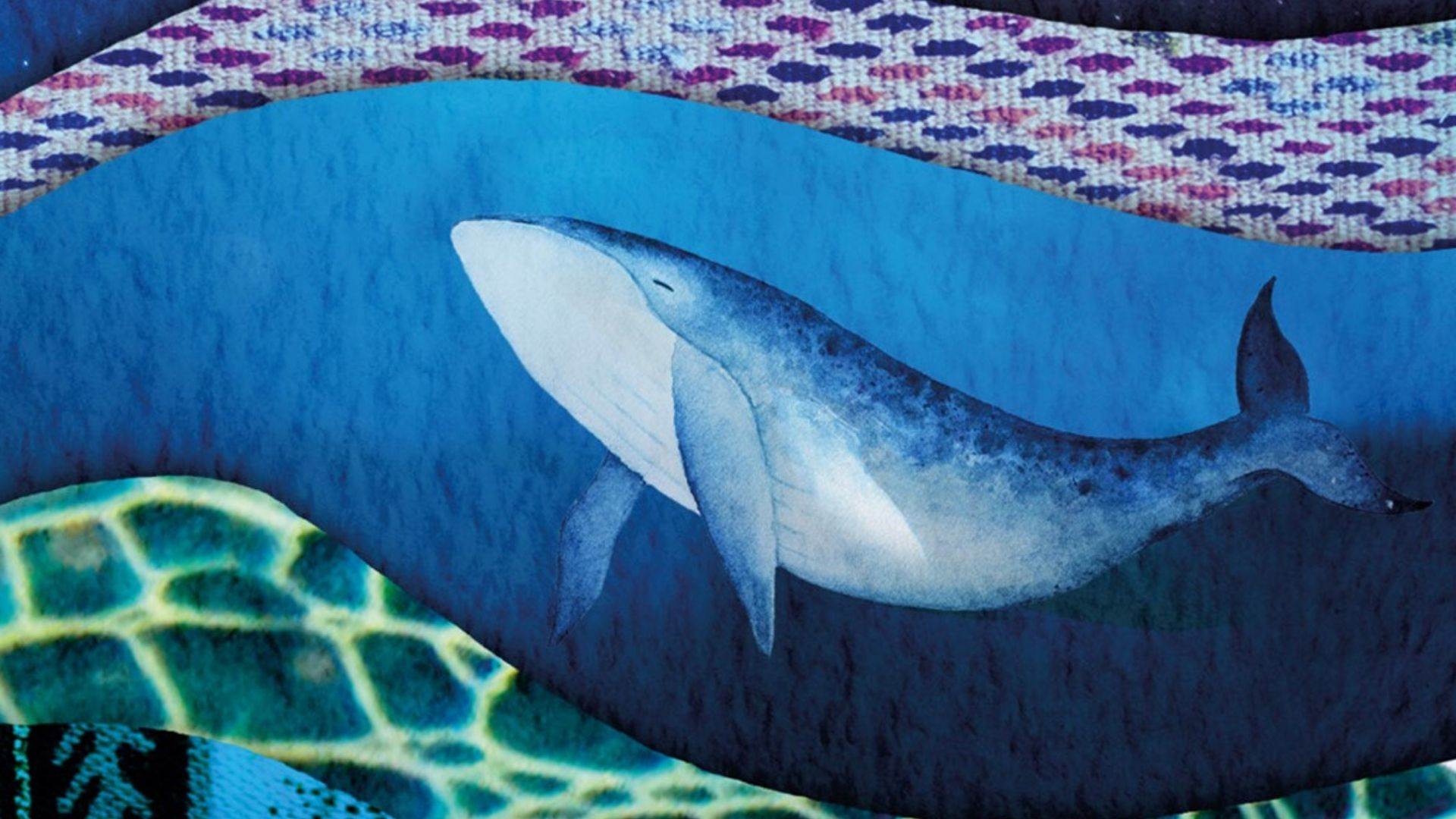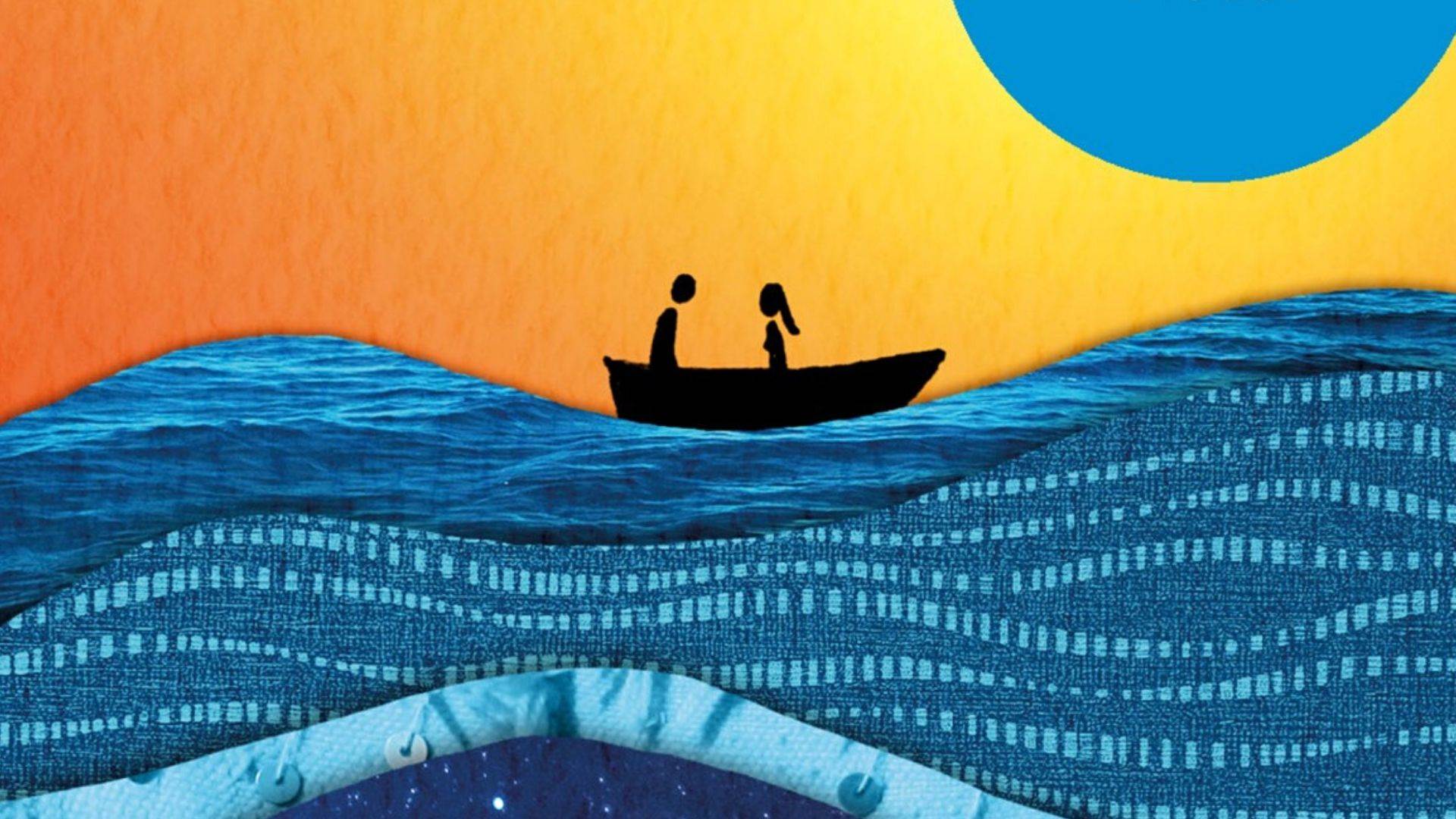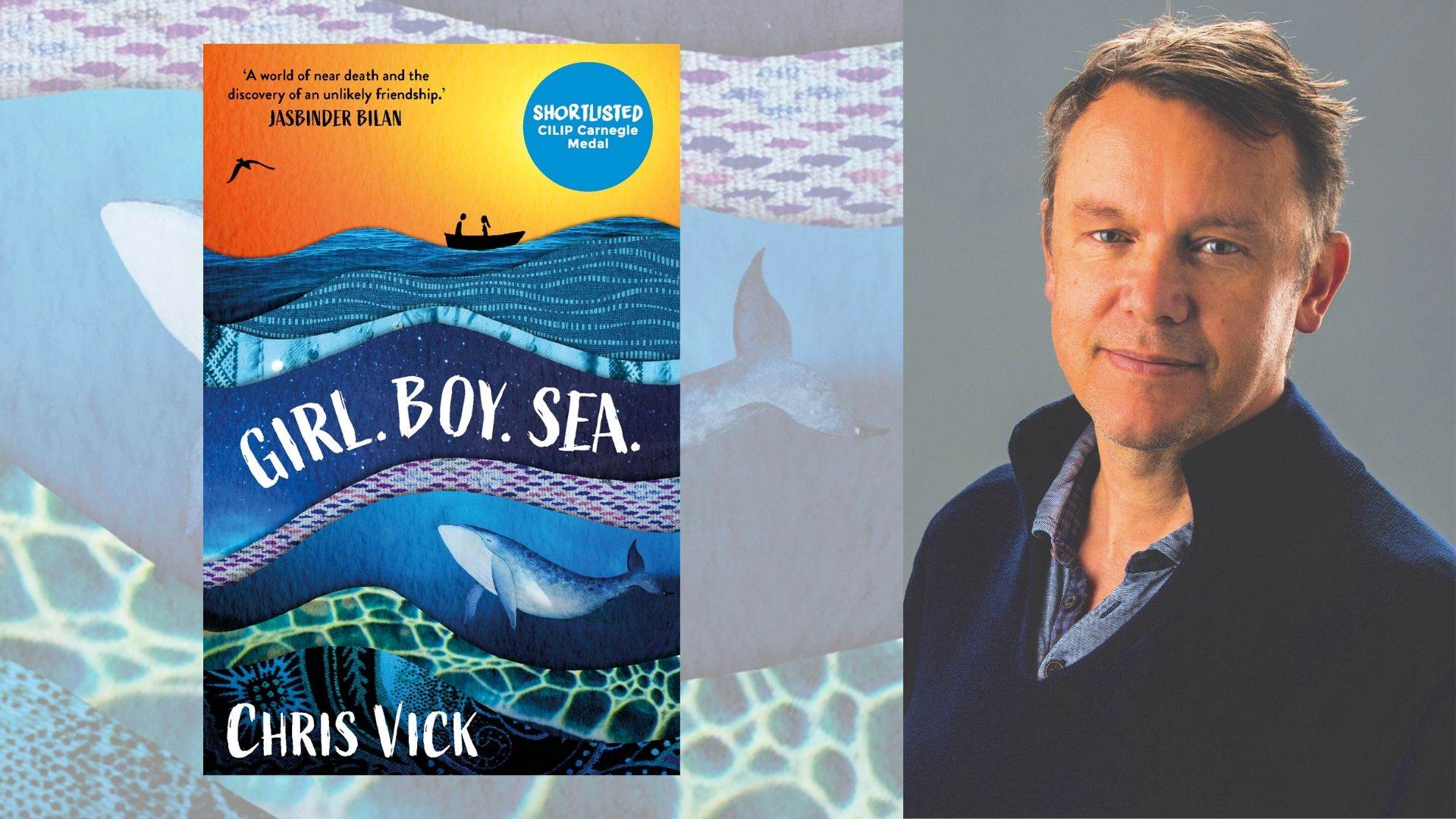"By saving the whale, we might save ourselves."
Published on: 29 Mehefin 2020
Chris Vick, author of Carnegie shortlisted Girl. Boy. Sea., talks about writing, working in marine conservation, and how the ocean inspires incredible stories.
 Illustration from Girl. Boy. Sea. by Chris Vick
Illustration from Girl. Boy. Sea. by Chris Vick
Once upon a time I led two lives.
The first – the more public one - was led by my passion for the sea. Working in whale and dolphin conservation, I’ve been lucky enough to see these most mysterious and magnificent animals across many oceans. And I’m a surfer. And I come from a long line of whalers and boat builders. So I romantically imagine salt water is in my blood. I can’t get enough of the water. And I’ve rarely been out of it, or away from it, for very long.
My other - more secret life - was as a (then) unpublished writer of books for young people. I wrote about elves, and time travel and vampires. All of it was writing either like, or almost ‘as,’ someone else; copying JK Rowling, or Philip Pullman, or Neil Gaiman. None of it was much good. And I never wrote about the sea, nor wrote with my own voice.
I call this my ‘what the hell was I playing at?’ period. Luckily it only lasted twelve or so years.
It was when I did the Bath Spa MA in Writing for Young People that I experimented with different types of stories and writing, including writing pieces about whales and conservation, about surfing, about almost drowning, about immersion and baptism. These were pieces informed by my passions and experience, and based on people I’ve known and places I’ve been. (Though one of the mysteries of the sea is whether it can truly ever be described as a ‘place’ at all). I was ‘encouraged’ by my tutors to abandon the fantasy writing and focus on my writing about the sea. (When I say ‘encouraged,’ I mean ‘pressganged into’).
The water seeped from one life into the other. Then leaked. Then flooded.
Girl. Boy. Sea. is my fourth published book. All of them have the sea at their heart, not merely as a setting, but often as a character of a kind: a monster, an ally, a mentor, or god, to be variously conquered, vanquished, placated, appeased or simply surrendered to.
So these two parts of my life now make one complete whole. Like two seas meeting, they cannot be divided, and as my writing career progresses, many of the reasons for my work as a conservationist also find their way into my writing and author work.
Exploring the ocean through stories
I’m proud to be part of Authors4oceans, an alliance of writers, put together by my fellow writer for young people, the wonderful Lauren St John. We use whatever modest platform we have to get the message across to young people: that oceans – and how we treat them – matter, not only for their own purpose and existence, but for our own wellbeing.
But we are authors. We don’t preach sermons or give lessons. We tell stories; we explore the ocean, imaginatively, in our books.
 Illustration from Girl. Boy. Sea. by Chris Vick
Illustration from Girl. Boy. Sea. by Chris Vick
To illustrate: Some might say that books for young people shouldn’t be a vehicle for ‘issues.’ Up to a point, I’d agree. Characters and events are what matter; the story must come first. But if the story is strong, why shouldn’t a children’s book explore so-called issues? Young people care about their world, often passionately and it’s inspiring to see. There are wonderful books that are explorations of racism, war, LGBTQ+ issues and more. And when these books are good, they perhaps use these subjects as a lens through which to examine and explore very common experiences: pain, hope, joy and more. The things that make us human.
An ‘issue’ like ocean or whale conservation cannot be understood through facts, and news alone. Not even through amazing David Attenborough documentaries.
The best way to experience anything is by being our own skin, and using our own senses. But books, as well as having many other benefits, provide great ways to hear other voices, and experience other things, both terrible and wonderful; experiences and situations we may not want to live through, but where we still want to get a sense of what those things are, and what they are like. Stories help us to sympathise, empathise and vicariously experience; to live in other skins, and see through other eyes, if only for a while. And that is a much deeper understanding than facts alone can provide.
Connecting the story to the real world
One of the reasons I love writing for young people is that there are few rules, and hence, few limits. There’s a fluid freedom in our story-telling, a sophistication in the ‘message’ and subtlety in the ways we explore the world.
This subtlety is vital, in my view. If the ‘message’ is ‘we need to stop polluting the ocean,’ so what? Young readers already know that before they read the first page. But what’s it like to be a whaler? Or for that matter, a whale? To ride a life threating wave? To drown? To lose loved ones in a merciless storm? To feel the wonder of the endless horizon, and the fathomless blue that seems to stir and calm the soul simultaneously?
A good book exploring these things is an education, though not in any formal sense. It’s also a way for young people to recognize and contextualize their own experience. Stories, as David Almond has said, are ‘beautiful lies.’ Blatant falsehoods that contain truth. And when we read good stories about the sea, we connect with what those stories say and show us; we connect it to our own experience, be that scuba diving, walks on the shore or paddling on a Devon beach.
Never has this connection been more vital. Several species of whale and dolphin are on the verge of extinction. Fishing kills at least 300,000 whales and dolphins a year. Far, far more than whaling. But there are also selfish reasons to ‘save the whale.’ Left to recover, they will soak up huge amounts of carbon, on a par with multiple Amazon rainforests. And by spreading nutrients through the watery eco-system, will generate phytoplankton, which gives us oxygen and itself stores vast amounts of carbon.
The science on this is just emerging. But the data is strong. And, perhaps more importantly, the story is very clear. We must protect the oceans. We can be the heroes in that story. We can redeem. By saving the whale, we might - just might - save ourselves.
Check out our top books about the ocean and seaside
Follow Chris Vick on Twitter.
 Author Chris Vick and the cover of Girl. Boy. Sea.
Author Chris Vick and the cover of Girl. Boy. Sea.
Topics: Features





